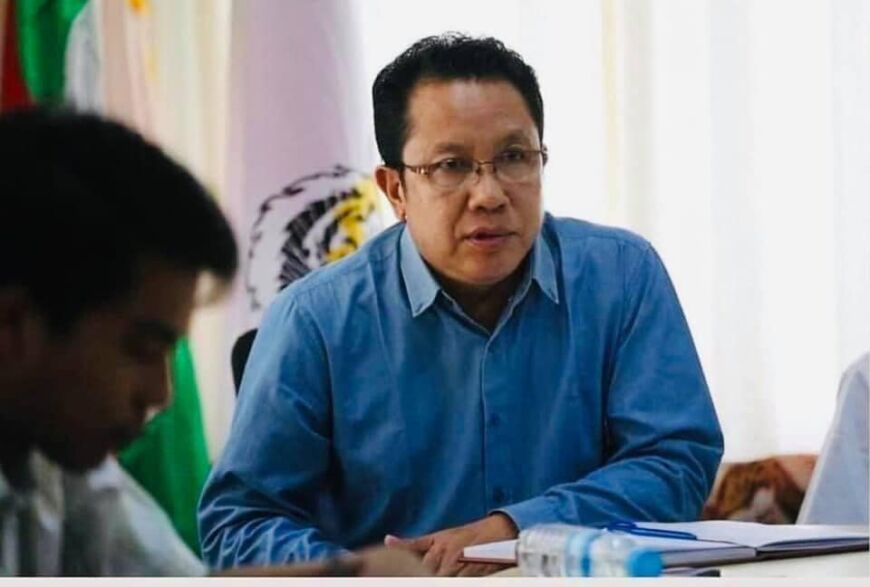An interview with the General Secretary of the SNLD.
January 18th, 2022
The MNA interviewed U Sai Leik, General Secretary of the Shan Nationalities League for Democracy (SNLD) about the current political landscape and the military council’s preparations for the election.
Q: Can the military take a step to draw the new charter after the annulment of the 2008 Charter if the military cannot hold the election in the coming year? May I know your view on it?
A: Annulling the 2008 Charter and drawing the new charter is not an easy step. In my view, the military council has declared that the election would be held in August, 2023. But stability and tranquility is required for holding the election. The military council may find it difficult to hold the election if it cannot create a stable condition. But, on the other hand, the junta can control the power for one more year. The military may extend it for two more years—six months twice. There are six extra months as the election is scheduled for August. In my view, the junta may hold the election by forming the interim government or make a substitution during six extra months. The military may attempt to control the political power without the withdrawal from the politics under the PR system, by cooperating with its allied parties.
Q: What will happen next if the junta is unable to hold the election due to instabilities in the country?
A: We cannot say exactly whether the election can be held or not. It may be. On the other hand, as the military’s spokesperson said, there is no stability in Sagaing Region, Magway Region, Karenni State and Chin State. The point is there is no political stability. The military may hold the election in other regions and states by skipping the regions and states where there is no regional stability. The junta will shift to another method if the seizure of power under the law is more than two years. The junta must hold the election if he wants to do so. He may attempt to obtain the legitimacy by holding the election except the skipped areas. Whether the public accept it or not depends largely on the future conditions. This is my estimation.
Q: At present, some political parties are discussing the PR system with the military-backed Union Election Commission (UEC). Some analysts said that at present, the military can form the government as it has taken up 25 per cent of parliamentary seats. May I know your view on it?
A: It is sure that this is the military’s another step to avoid the withdrawal from the politics and to continue to control the power. The ethnic parties and those from the National League for Democracy (NLD) submitted a proposal to exercise the PR system in the time of the U Thein Sein Administration in around January, 2016. The constitutional tribunal rejected that proposal at that time as the PR system was not in conformity with the 2008 Charter. It can be said that the military’s efforts to shift to the PR system goes against the 2008 Charter firmly held by the military. It is found that the military would use every possible means to retain power.
Q: Do you have anything to add about whether the election can be held or not?
A: The military will not achieve success whenever the election is held if there is no political stability, and the public objects to it. The most important point is that without the withdrawal from politics, what the military does will be inconsistent with the public’s desires. To sum up, there will be no harmony between the military and the public.
Sent by the MNA.

